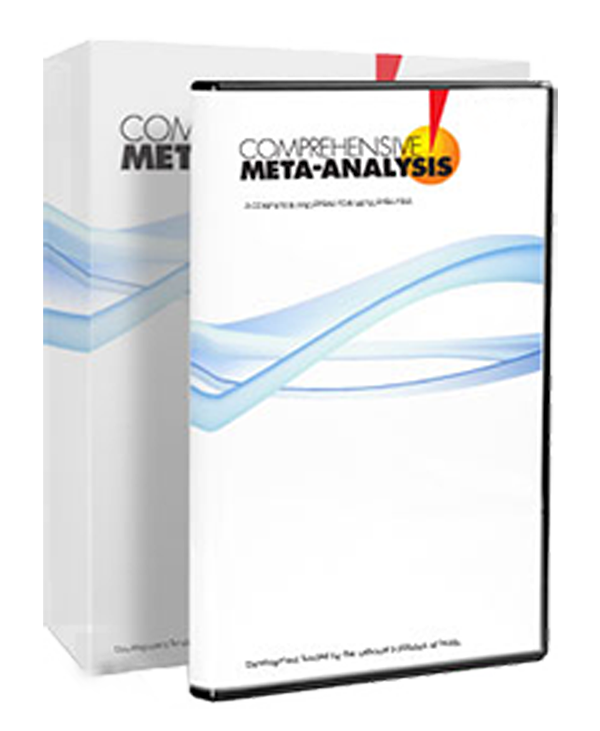Version 2 software
Important: Version 2 Users
If you own V2 and need to reinstall it on a new machine,
send us a note at [email protected] and we'll send a link to V2.
Comprehensive Meta-Analysis

Comprehensive Meta-Analysis (CMA) is a powerful computer program for meta-analysis. The program combines ease of use with a wide array of computational options and sophisticated graphics.

"I have been using Comprehensive Meta‐Analysis for the past five years and have enjoyed the many features of this software including the numerous options for fitting data into the spreadsheet for analysis of categorical and continuous data and the ease of labeling variables and study names. The built in analysis features are many and easy to apply including the test for heterogeneity and Egger’s test for publication bias. This software has allowed me to publish meta‐analyses with confidence in several peer reviewed journals including the Journal of Cardiology. Also I am often asked to give lectures on the use of meta‐analyses. My demonstrations include examples from this program. When asked by my peers for a reliable meta‐analysis package I do recommend this software."
Al Bartolucci, Ph.D. - Professor, Department of Biostatistics, School of Public Health, University of Alabama at Birmingham, Birmingham, Alabama
"One of the hardest things for non‐statisticians conducting meta‐analyses is to figure out how to combine data when the data are in different forms. Using continuous outcome as an example, one study might report before‐and‐after scores, and another might report change scores. Comprehensive Meta‐Analysis allows one to take data in any form and seamlessly converts it so that all the data can be included, or tells the meta‐analyst what additional information is necessary to complete the process. This one aspect of the program can save hours of time for non‐statisticians who are not used to converting data from one format to another."
Ian Shrier - McGill University, Canada